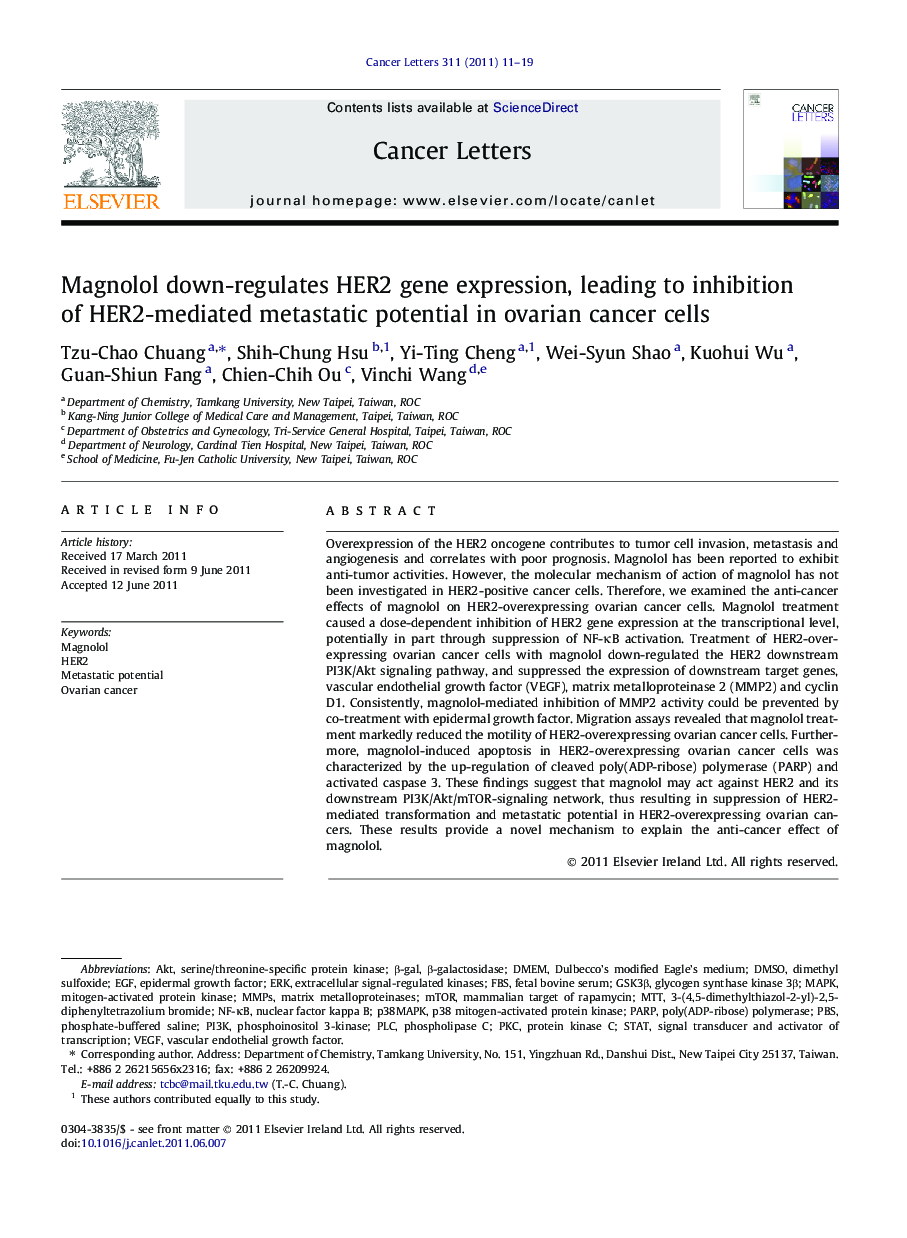| Article ID | Journal | Published Year | Pages | File Type |
|---|---|---|---|---|
| 2116360 | Cancer Letters | 2011 | 9 Pages |
Overexpression of the HER2 oncogene contributes to tumor cell invasion, metastasis and angiogenesis and correlates with poor prognosis. Magnolol has been reported to exhibit anti-tumor activities. However, the molecular mechanism of action of magnolol has not been investigated in HER2-positive cancer cells. Therefore, we examined the anti-cancer effects of magnolol on HER2-overexpressing ovarian cancer cells. Magnolol treatment caused a dose-dependent inhibition of HER2 gene expression at the transcriptional level, potentially in part through suppression of NF-κB activation. Treatment of HER2-overexpressing ovarian cancer cells with magnolol down-regulated the HER2 downstream PI3K/Akt signaling pathway, and suppressed the expression of downstream target genes, vascular endothelial growth factor (VEGF), matrix metalloproteinase 2 (MMP2) and cyclin D1. Consistently, magnolol-mediated inhibition of MMP2 activity could be prevented by co-treatment with epidermal growth factor. Migration assays revealed that magnolol treatment markedly reduced the motility of HER2-overexpressing ovarian cancer cells. Furthermore, magnolol-induced apoptosis in HER2-overexpressing ovarian cancer cells was characterized by the up-regulation of cleaved poly(ADP-ribose) polymerase (PARP) and activated caspase 3. These findings suggest that magnolol may act against HER2 and its downstream PI3K/Akt/mTOR-signaling network, thus resulting in suppression of HER2-mediated transformation and metastatic potential in HER2-overexpressing ovarian cancers. These results provide a novel mechanism to explain the anti-cancer effect of magnolol.
► Magnolol repressed HER2 gene expression at the transcription level. ► Magnolol reduced metastatic potential of HER2-positive ovarian cancer cells via modulating the HER2/PI3K/Akt pathway. ► Magnolol induced apoptosis in HER2-positive ovarian cancer cells.
